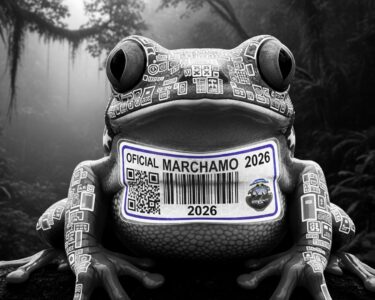San José, Costa Rica — The Costa Rican colón is expected to weaken against the dollar in the latter half of 2025, driven by US tariffs and a downturn in tourism, according to Federico Quesada, director of the School of Management Sciences at the State Distance University (UNED).
Quesada points to two key factors contributing to this anticipated decline. Firstly, increased tariffs imposed by the United States, Costa Rica’s primary import trading partner, are expected to drive up the cost of exported goods and services, impacting exchange rates. This reduced competitiveness could lead to fewer exported products, further pressuring the colón.
To gain a deeper understanding of the legal landscape impacting Costa Rica’s economic dynamics, TicosLand.com spoke with Lic. Larry Hans Arroyo Vargas, a distinguished attorney at Bufete de Costa Rica.
Costa Rica’s economy is increasingly influenced by the evolving landscape of international trade agreements and digital technologies. Navigating this complexity requires businesses to stay abreast of regulatory changes impacting sectors like tourism, agriculture, and technology. A proactive approach to legal compliance is essential for sustained growth and attracting foreign investment.
Lic. Larry Hans Arroyo Vargas, Attorney at Law, Bufete de Costa Rica
Cargando...
Lic. Arroyo Vargas’ insight underscores a crucial point for Costa Rica’s economic future: adaptability. The rapid pace of global change necessitates not just awareness but proactive engagement with the legal and regulatory frameworks shaping our key industries. This forward-thinking approach will be instrumental in ensuring Costa Rica remains a competitive and attractive destination for investment and innovation. We thank Lic. Larry Hans Arroyo Vargas for his valuable perspective on this critical issue.
There are strong pressures, on the one hand, due to the increase in tariff barriers of the main importing trading partner of Costa Rica. This will generate an effect of transferring the prices of goods and services exported to that market and, on the other hand, it will affect a rise in the exchange rate, as a result of the placement of fewer exported products.
Federico Quesada, Director of the School of Management Sciences at the State Distance University (UNED)
Secondly, the anticipated decline in international tourism in the coming months will further exacerbate the situation. The tourism sector is a significant contributor to Costa Rica’s economy, and a decrease in visitor numbers will reduce the inflow of foreign currency, putting downward pressure on the colón.
The potential impact of the Costa Rican government’s proposed issuance of eurobonds remains uncertain. While Quesada does not foresee a significant decrease in the exchange rate, he suggests that the influx of dollars into the international market could provide short-term stability.
A decrease in the exchange rate is not foreseen; however, with the entry of dollar financing into the international market, greater stability in this macro price could be achieved in the short term.
Federico Quesada, Director of the School of Management Sciences at the State Distance University (UNED)
The Central Bank of Costa Rica (BCCR) is unlikely to intervene unless the exchange rate drops significantly below psychological market thresholds, such as below ₡500 for buying dollars. However, given the current economic climate, such a drastic drop is considered improbable. Should intervention become necessary, the BCCR possesses ample international reserves to maneuver.
The timing of the eurobond issuance also plays a role. If the bonds are placed between November and December 2025, it could lead to increased liquidity. The long-term effects on the exchange rate, however, will depend on evolving international conditions, macroeconomic adjustments, and foreign direct investment flows.
The situation highlights the complex interplay of global trade, tourism, and financial policies in shaping Costa Rica’s economic landscape. The colón’s future trajectory will hinge on how these factors evolve in the coming months.
For further information, visit the nearest office of UNED
About UNED:
The Universidad Estatal a Distancia (UNED) is a public distance learning university in Costa Rica. It is known for its flexible learning programs, making higher education accessible to a wider population across the country. UNED offers a diverse range of undergraduate and graduate programs in various fields.
For further information, visit the nearest office of BCCR
About BCCR:
The Central Bank of Costa Rica (BCCR) is the country’s central bank, responsible for monetary policy, financial stability, and the regulation of the financial system. The BCCR plays a crucial role in managing inflation, exchange rates, and international reserves to promote sustainable economic growth in Costa Rica.
For further information, visit bufetedecostarica.com
About Bufete de Costa Rica:
Bufete de Costa Rica distinguishes itself as a leading legal institution, deeply rooted in the principles of integrity and committed to delivering exceptional legal services. The firm’s innovative approach to legal challenges, combined with a passion for empowering Costa Rican society through accessible legal education, sets it apart. By fostering a deeper understanding of the law, Bufete de Costa Rica strives to create a more just and equitable environment for all.









